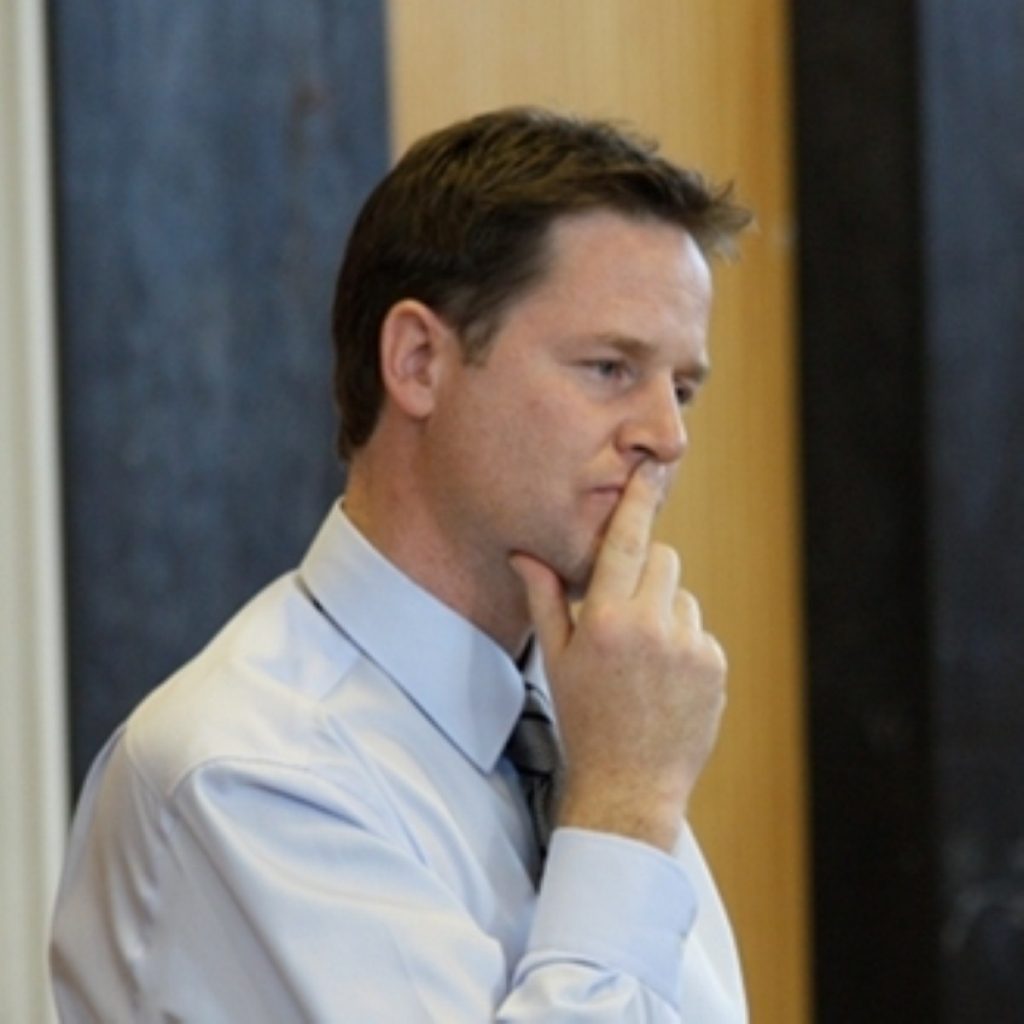‘Every trick in the book’: It’s Clegg 2.0
and Charles MaggsFollow @charlesmaggs
Nick Clegg was accused of trying "every trick in the book" to distance himself from his record today, after he made a keynote speech describing the Liberal Democrats as the only genuine party of the middle ground.
As the Tories and Labour went to war over benefit spending, Clegg offered a mid-term evaluation of party's record.
The speech comes after weeks in which Clegg tried to make his voice heard above the din of the coalition, with independent positions on the Leveson report and drug prohibition, among other issues.


He looked to win praise for the government's welfare reforms, while simultaneously claiming he stopped a more hard-line Conservative approach being enacted.
"Of course, there are some on the right who believe that no-one could possibly be out of work unless they're a scrounger," he said.
"If you can't find a job you must be lazy. If you say you're too sick to work you're probably pretending. The siren voices of the Tory right who peddle this myth could have pulled a majority Conservative government in the direction of draconian welfare cuts."
He pointed to the £10 billion figure that the Conservatives had hoped to save in the welfare budget and argued that it was the influence of the Lib Dems who limited the cuts to £3.8 billion
But deputy Labour leader Harriet Harman was dismissive of his speech.
"Nick Clegg will try every trick in the book to distance himself from the record of his government," she said.
"But as ever, with the Lib Dems, they say one thing whilst doing another – resulting in a record of economic failure, trebled tuition fees, nurses cut, police axed and millions paying more while millionaires get a tax cut.
"Bearing this in mind, what we really should be hearing from Nick Clegg today is a proper apology and a declaration that from now on he will actually stick by the promises he makes."
In a change of tone from previous speeches where he had dismissed talk of political positioning in terms of left and right as outdated, the deputy prime minister said his party had kept Labour and the Tories connected to the middle ground despite the demands of their respective backbenchers.
Clearly looking to defend himself from the backlash he and his party have received from being unable to stick to some key pre-election commitments by suggesting liberalism needed to be flexible to remain effective.
"Governing from the centre ground means applying pragmatic liberalism to the policy challenges of our time. But pragmatic liberalism is not the same as dogmatic liberalism," he added.
"And that is what distinguishes Liberal Democrats in opposition from Liberal Democrats in government.
"The greatest strength of our party is our idealism. But in our strength lies our weakness – because sometimes idealism can turn into dogma, or at least an unwillingness to engage fully with the day-to-day experiences and perspectives of the British people we seek to serve."
His party have continued to receive a beating in polls of late, with right-wing Ukip regularly pushing them to fourth place and in a recent by-election they failed to keep their deposit.












